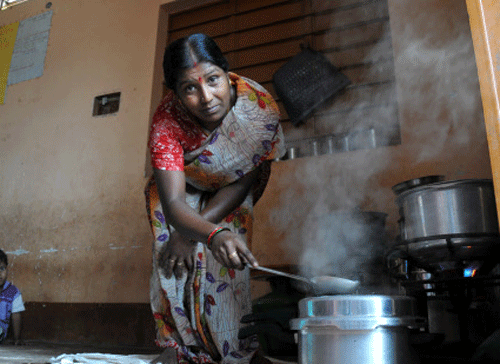
The tragic death of 22 schoolchildren at Saran district in Bihar has rung alarm bells across the country about the quality of food served in midday meals in schools. It has also raised questions about the conditions under which the food is cooked.
A survey, conducted after the shocking incident in Bihar, finds huge gaps in implementation of the midday meal scheme, not just in Bihar but also in neighbouring West Bengal — two states where consumption of midday meals at schools are higher than most states.
The survey, conducted by India’s largest children-related NGO, Child Relief & You (CRY), highlighted these lacunae in the system to ensure that Bihar-like tragedies are not repeated.
The initial report of a fact-finding team sent to Dharamsati by the Bihar Lok Adhikar Manch (BLAM), a local NGO supported by CRY, found serious negligence on part of school authorities, like storing food grains and cooking oil in the same room as insecticides and chemical manure.
“What’s more, the cooking oil was preserved in an old can of insecticide. The school also didn’t have a dedicated kitchen shed, and midday meals were prepared at an open balcony of the community hall, which itself is a major violation of norms,” noted the report.
“The incident once again proves that standards of services offered to children are far below expectation, and raise the question whether children are the priority of anyone at all in this country,” stated Vijayalakshmi Arora, CRY’s director for policy research and advocacy.
Pointing out noticeable gaps in the implementation of the Right to Education (RTE) Act, she said, “Only a fundamental change in mindset, attitude and practice of the school authorities, teachers and the society at large can address the issue and help bring in a lasting change in our children’s educational atmosphere.”
Deccan Herald is on WhatsApp Channels| Join now for Breaking News & Editor's Picks